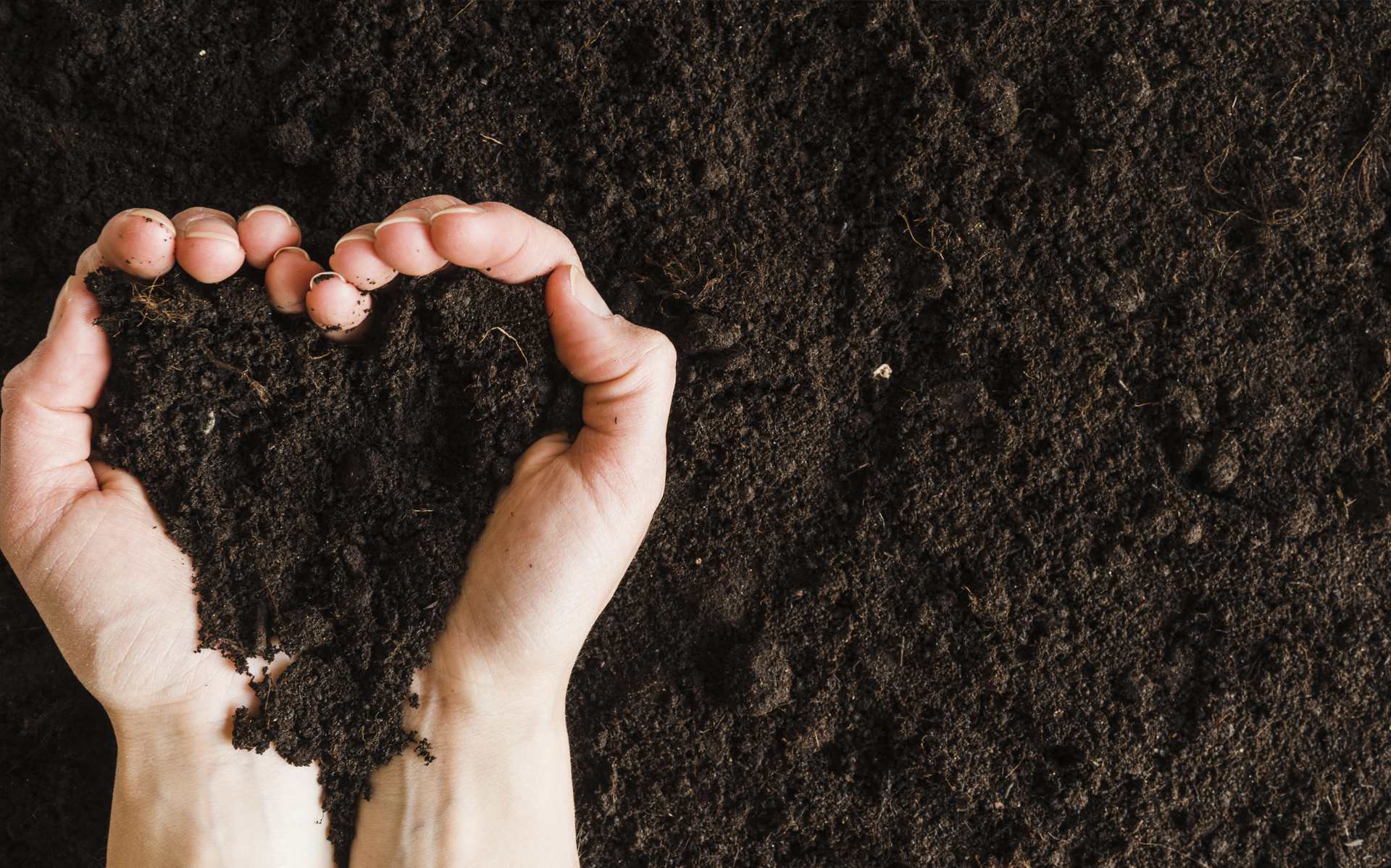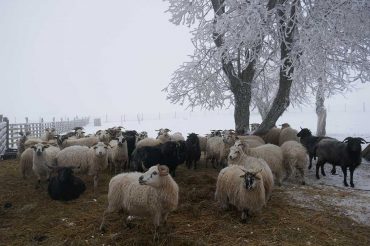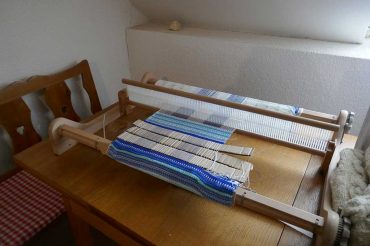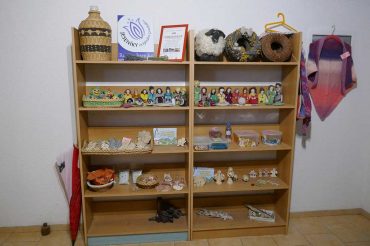INTRODUCTION
At Mr. Křenková’s farm you can get to know and recall the importance of the countryside and the breeding of farm animals for the landscape and people.
In her Sunday School of Crafts, you can learn to weave wool, weave on the loom, bake bread in a real brick oven, make cheese or curd from milk, or knit a basket.
Throughout the day horses graze the farm. You can also find a herd of Wallachian sheep on the farm. The original breed is an endangered animal species. The farm has white sheep and the rare blacks.
The farm gradually became the centre of a small village of 60 inhabitants. An amateur theatre association called PEC was founded on the farm.

I don’t think that as a woman I have any different opportunities than a man. If I want to prove something, I will find a way, and it doesn’t matter if I am a woman or a man. What is crucial to supporting my business is that I choose a life partner with the same feeling, with the same values of life and the same goals.
1. PERSONAL DATA
Name
Vladimíra Křenková
Age Range
46 +
Education
High school gradute of an agricultural school.
Occupation
Farmer (part-time).
2. FARM PROFILE
Address/coordinates
Stránské 5, 793 51, Břidličná, region Moravskoslezský.
Farm Area in ha
6ha.
Date since when the female entrepreneur owns/rents the farm:
2005.
Nº of workers on the farms
| FULL TIME | |
|---|---|
| Family members | Other than family members |
| 1 | |
| PART-TME/SESONAL | |
|---|---|
| Family members | Other than family members |
| 1 | 2 |
| WOMEN | |
|---|---|
| Family members | Other than family members |
Farm description
The idea was to start a farm open to the public, where visitors could learn how to make traditional crafts. This vision was born in Mrs. Křenková’s mind during a long stay in the hospital. After waking up from a coma, she reconsidered her life priorities and after returning from the hospital she and her husband bought a dilapidated farmhouse, which they began to repair and slowly realise a common dream.
The farm has: 2 cows, 3 horses, 3 ponies and 65 sheep of Wallachian breed (the breed is an endangered animal species). The farm operates like a family business and is not very large. Gradually, they started to teach traditional handcrafts and promote handcrafts already started activities on the farm. They mainly teach wool processing by spinning, weaving and felting. They also teach basketry, tinker, batik, herbalism, bread baking, milk processing, and ceramics. The farm organises events aimed at supporting traditions and agriculture such as Welcoming young, Christmas on the farm, a scythe mowing competition, etc.
The farm is open to the public daily from 10 am to 5 pm. Recently they expanded their activities on the farm to offer accommodation on the farm.
The farm operates as a community centre, because there is no shop or pub in the village, so people naturally meet with on the farm at various cultural events which they organise. That is why an amateur theatre club was established, which gained background on their farm.
3. MULTIFUNCTIONALITY / RURAL CULTURAL HERITAGE
The main reason for introducing multifunctional activities on the farm was the desire to show the public the beauty of farming and maintaining agriculture in the form of a family farm. They also wanted a place where people could discover their skills in the craft teaching activities. Naturally, other activities are welcome, as people can simply express what they are interested in, and they just adapt their services.
The farm is the only functioning background in the village. It is a place to meet and share not only the craft experience, but also the exchange of oral history. On the farm, they organise discussions with historians and cultural figures. There is also a popular event called Evenings Behind the Kiln. Families with children and contemporary witnesses meet during the evenings, where children sit on the kiln and contemporary witnesses tell about their youth and the history of the village.
4. CONSIDERATIONS, TRAINING / COMPETENCES INVOLVED
- General considerations
- Training/Competences (Knowledge, Skills, Attitudes) especially relevant for the process
The extension of activities on the farm so-called multifunctional activities and the involvement of cultural heritage elements brought added value to the farm. The added value is the creation of contacts and cooperation with people from various disciplines. Their products do not have only added value calculated in the price of the product. Each product is above all a story and so their products are presented this way. This means, for example, that the wool product has a label and on the label is written which sheep gave its wool to a particular product, what the sheep’s name was, the breed and who created the product.
The biggest impact of multifunctional activities on the farm is that they realise their plans and their own ideas. At the same time, they are responsible for everything. They do what they want to do and must accept the unnecessary bureaucracy. Their achievements are theirs and, conversely, they also must deal with their problems themselves. It is not just business; it is a way of life that has allowed them to raise their children to love agriculture and craft. The younger son, thanks to these conditions, became an artistic blacksmith and the older son loves animals and likes to guide visitors on the farm. Generational change seems to be resolved in their case. The opening of the farm to the public has also been successful in preserving rural traditions. In cooperation with the surrounding farmers, they try to prevent traditional farming from replacing the cut lawns and pools at each cottage. The originality of their products is well-known and therefore they are successful in selling products. They try to cooperate with other wool processors and have founded a club of wool processors. They do not compete with each other in the club, but they cooperate in education and thanks to the cooperation with the Union of Sheep and Goat Breeders they hope to be successful.
Mrs. Křenková has not attended any special trainings about cultural heritage or multifunctional activities on the farm. She only received general counseling and mentoring.
Family farm.
Support from the family and other farmers.
Multifunctional farm (traditional agricultural products/traditional agricultural practice, conservation of traditional agricultural landscapes, traditional craftsmanship, oral traditions and expressions, theatre art, social practices, rituals and festive events (such as peasant festivities).
Regional Product Award Jesenicko - woolen products.
Small community.
Funding of certain repairs through subsidies.
Remoteness of the farm.
Responsibility for the farm.
Many farm inspections during the year (e.g. from the State Veterinary Office).
Cooperation with Protected landscape area Jeseníky.
Diverse events on the farm.
Cooperation with schools and spa Karlova Studánka.
Bureaucracy.
Not applying for subsidies because of the difficulty of administration process.
Lack of working force.
There is always work to do (time consuming).
The envy of some people.













